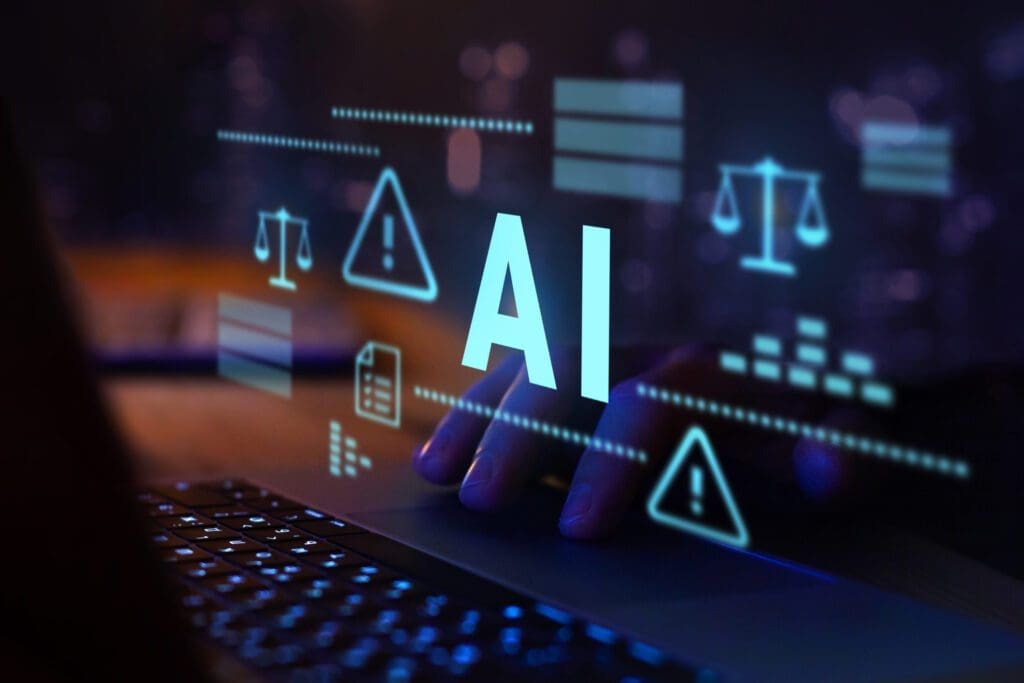 Have you ever been on the phone with a customer service representative for several minutes before realizing the “person” you are conversing with is actually just a machine? I recently had that experience, and it surprised me how authentic and genuine this robot was in mimicking actual human behavior and mannerisms. As AI continues to evolve, it is going to become harder and harder to differentiate what is real and what is not.
Have you ever been on the phone with a customer service representative for several minutes before realizing the “person” you are conversing with is actually just a machine? I recently had that experience, and it surprised me how authentic and genuine this robot was in mimicking actual human behavior and mannerisms. As AI continues to evolve, it is going to become harder and harder to differentiate what is real and what is not.
Obviously, in the wrong hands this technology increases the threat of identity theft and fraud. One way in which this is done, is through the use of something called deepfake technology. With it, scammers are able to manipulate video, photos or audio to depict someone doing, or saying something, they in fact never did or said.
This technology is surprisingly easy to access and use. Last year, for my parents 40th wedding anniversary I was able to take a single wedding photo of my parents and in mere minutes produce a realistic video of them singing the song “I’ve had the time of my life” to give them as a gift.
While that is a fun and harmless way to utilize this technology, it can also be used for more nefarious purposes, like to convince others that a famous celebrity or financial expert is recommending investment in their financial scam. Of those individuals depicted in these videos, the most popular is Elon Musk. As someone who is both well known, and viewed as financially astute. His apparent endorsement can provide legitimacy to the con and cost victims their life savings.
According to Deloitte, a leading financial research group, AI-generated content contributed to more than $12 billion in fraud losses last year alone, and could reach $40 billion in the U.S. by 2027. That is why last week the FBI issued a public service announcement warning people to be aware of the growing use of AI by fraudsters to enhance the convincing nature of their scams.
You may be saying to yourself you would never invest in something based on a video you saw on social media, regardless of who was endorsing it. While that may be true, that does not mean this same technology does not pose a clear and present danger to you as well. Imagine a scenario where you were called on the phone by someone you know and trust and asked to provide sensitive financial information. How quick would you be to provide that information?
AI now has the ability to recreate a person’s voice with shocking accuracy. This technology is not only able to recreate the sound of someone’s voice, but with a large enough sample size, can mimic their tone, speech patterns, and infliction as well.
Recently, hackers were able to use this technology to access highly confidential information from hotel and casino company MGM. By convincing employees they were speaking with their IT director these criminals were able to gain access to the data systems of the multinational corporation. After this breach, it took MGM nearly 10 days to regain total control of their systems and likely cost them millions.
Given the growing nature of this threat, you may wonder what you can do to protect yourself. While technology has been developed to detect these deepfakes, your best line of defense is a bit of skepticism and the use of common sense. If you see a video of some famous person guaranteeing you riches, assume they are lying. If someone claiming to be a loved one calls you from an unfamiliar phone number requesting information or money, simply hang up and call them back at a trusted phone number, or ask them questions only they would know to verify their identity.
I hate to say we have to all have our guards up all the time. That however, is unfortunately the world we now live in. Most of us have been born with a little voice in our head that tells us when something seems “off.” It’s more important than ever that we listen to it.
(Past performance is no guarantee of future results. The advice is general in nature and not intended for specific situations)
